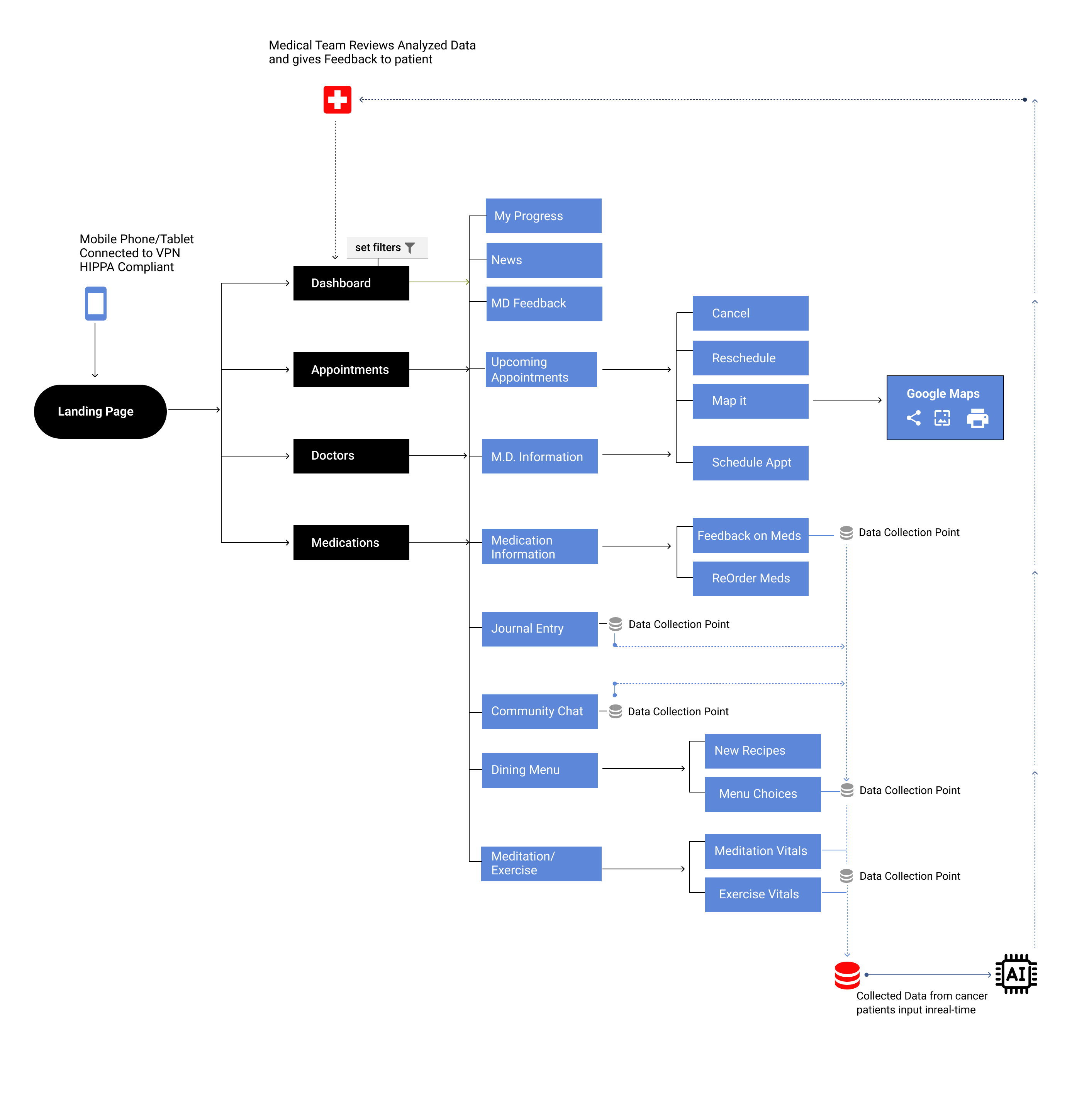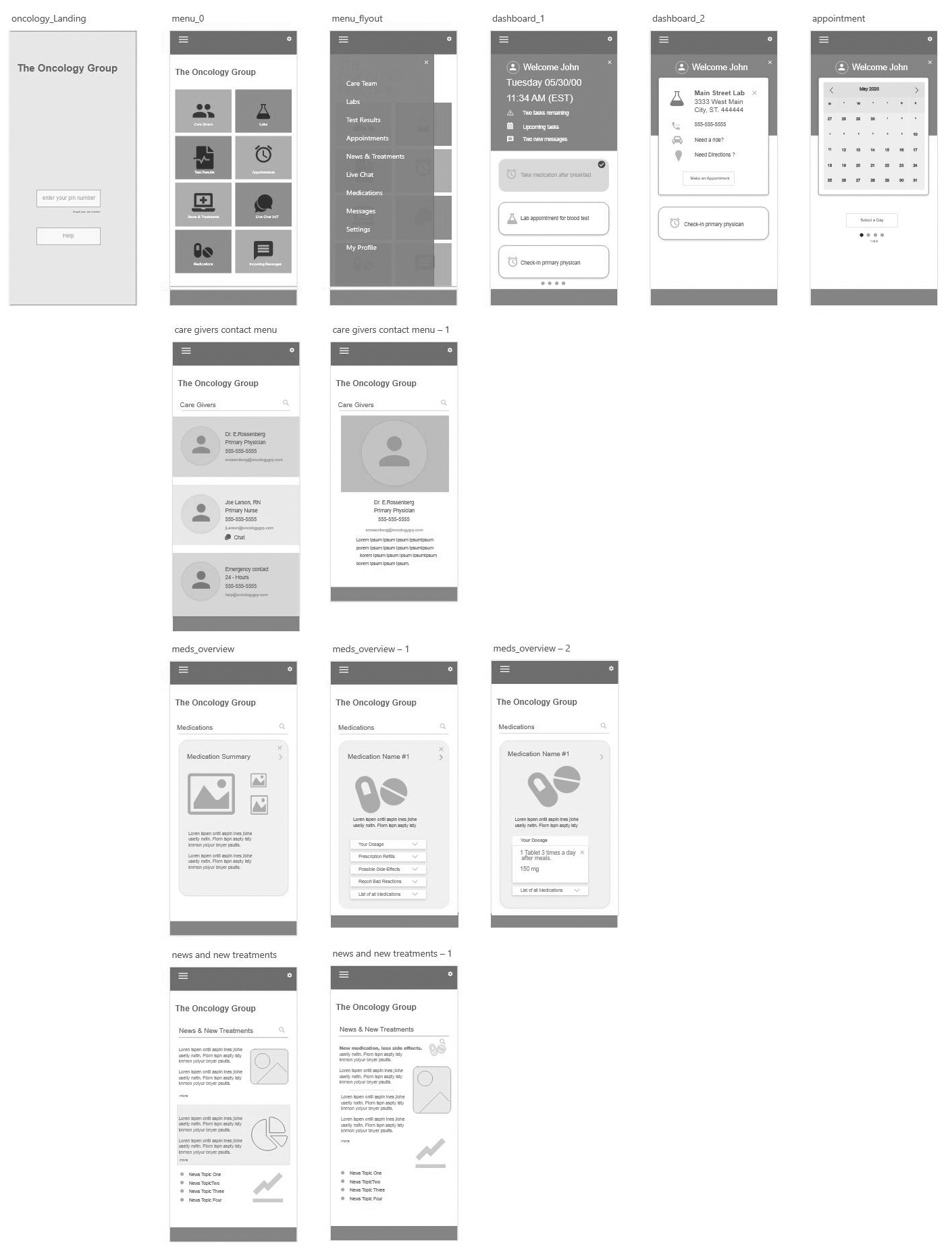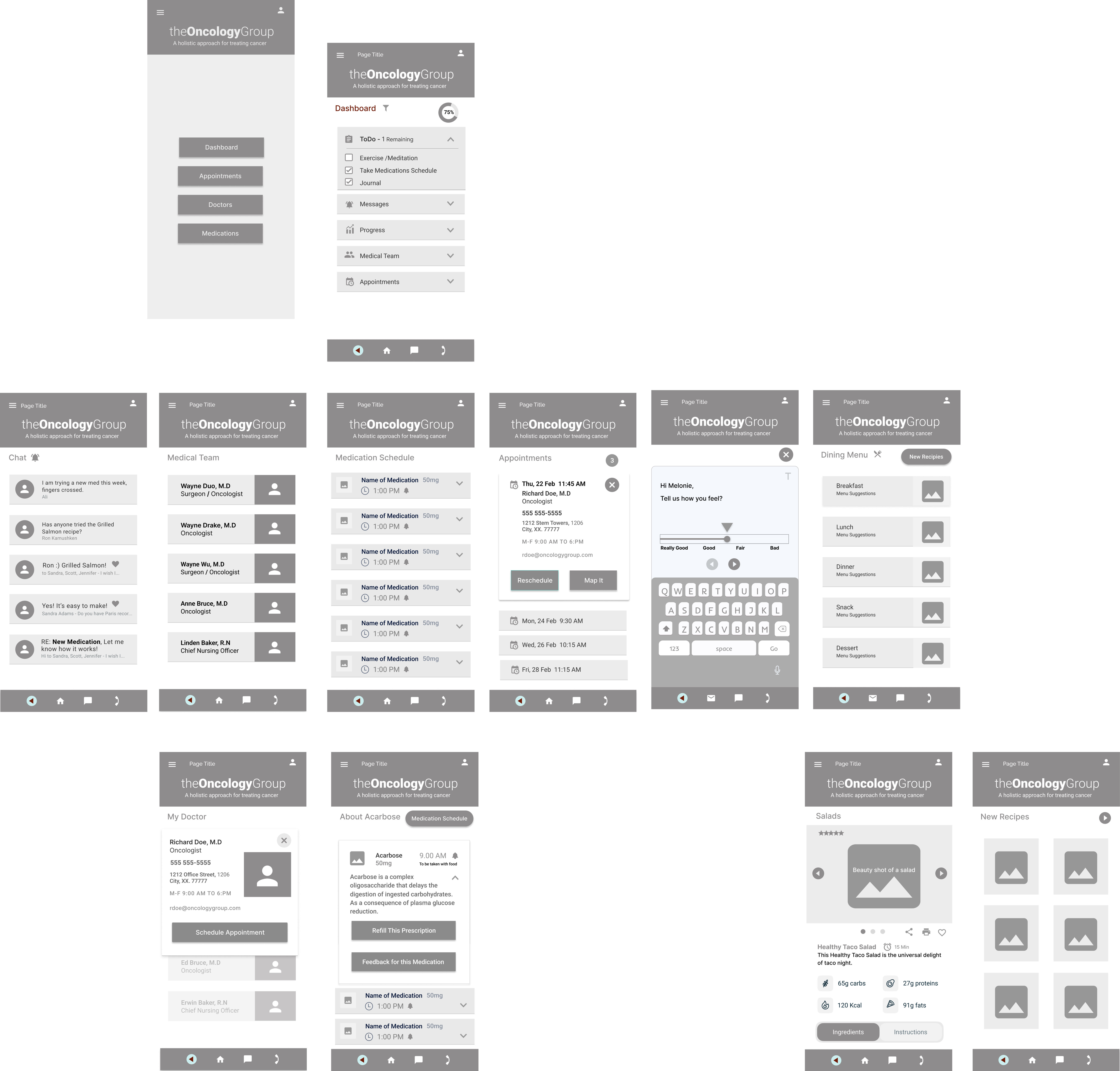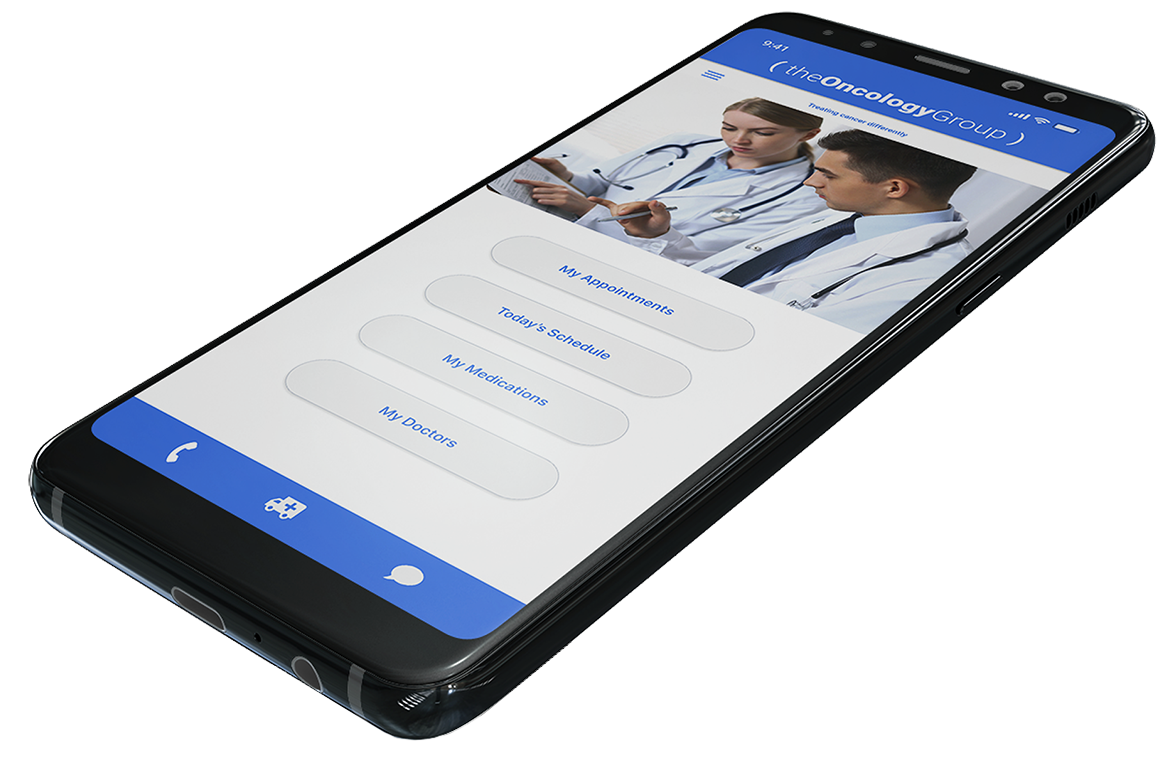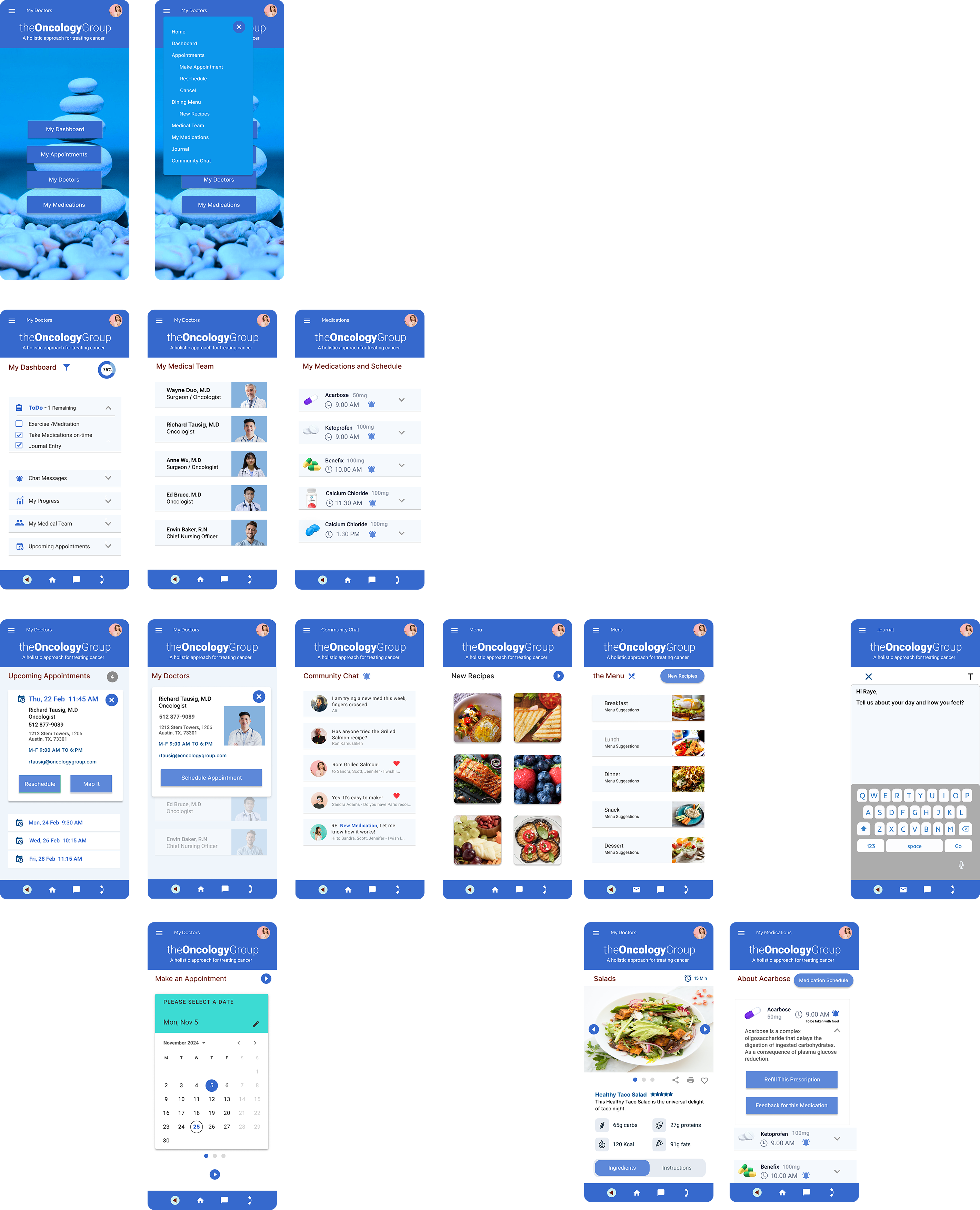


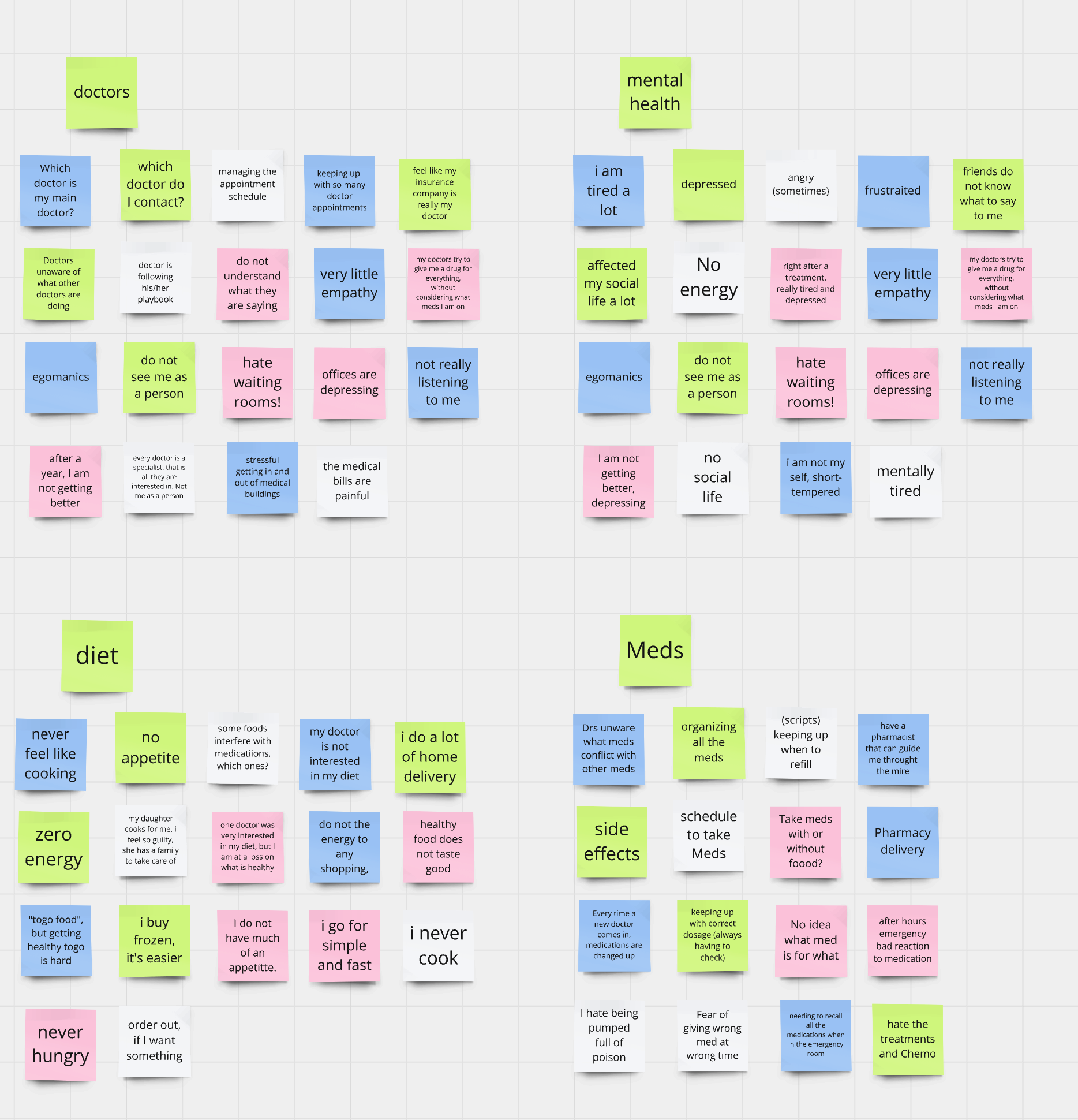

Key insights from the research led to the discovery of another user who would benefit from the app.
Caretakers. the individuals, usually a relative or close friend who is helping with the day-to-day challenges the patient is experiencing.
The input from this group of potential users could provide data and insight from a completely different perspective, this discovery required us to re-evaluate the direction we were taking.
During the interviews, patients described their experience with having cancer, doctors, the medical system, and the mental and emotional challenges of dealing with this disease. In each and every interview with patients, a second person was mentioned, their caretakers. The patient's voice and expressions would express a great deal of gratitude to this person, who was choosing to go through this journey with them. The caretakers are the spouses, brothers, sisters, uncles, close friends, or parents. Additional interviews revealed that caretakers are providing day-to-day support and care.
This person (caretakers) often has a busy life, managing their career, family, going to school, while supporting their loved one through the process. Caretakers take on many tasks such as keeping track of medications, preparing meals, drive to-and-from appointments, and the overall well being of their loved one.
This app was seen as a support tool in providing feedback to Caregivers on how their loved one is progressing, keeping track of medications, managing their life, but also help and guidance on how to provide better care for their loved one.
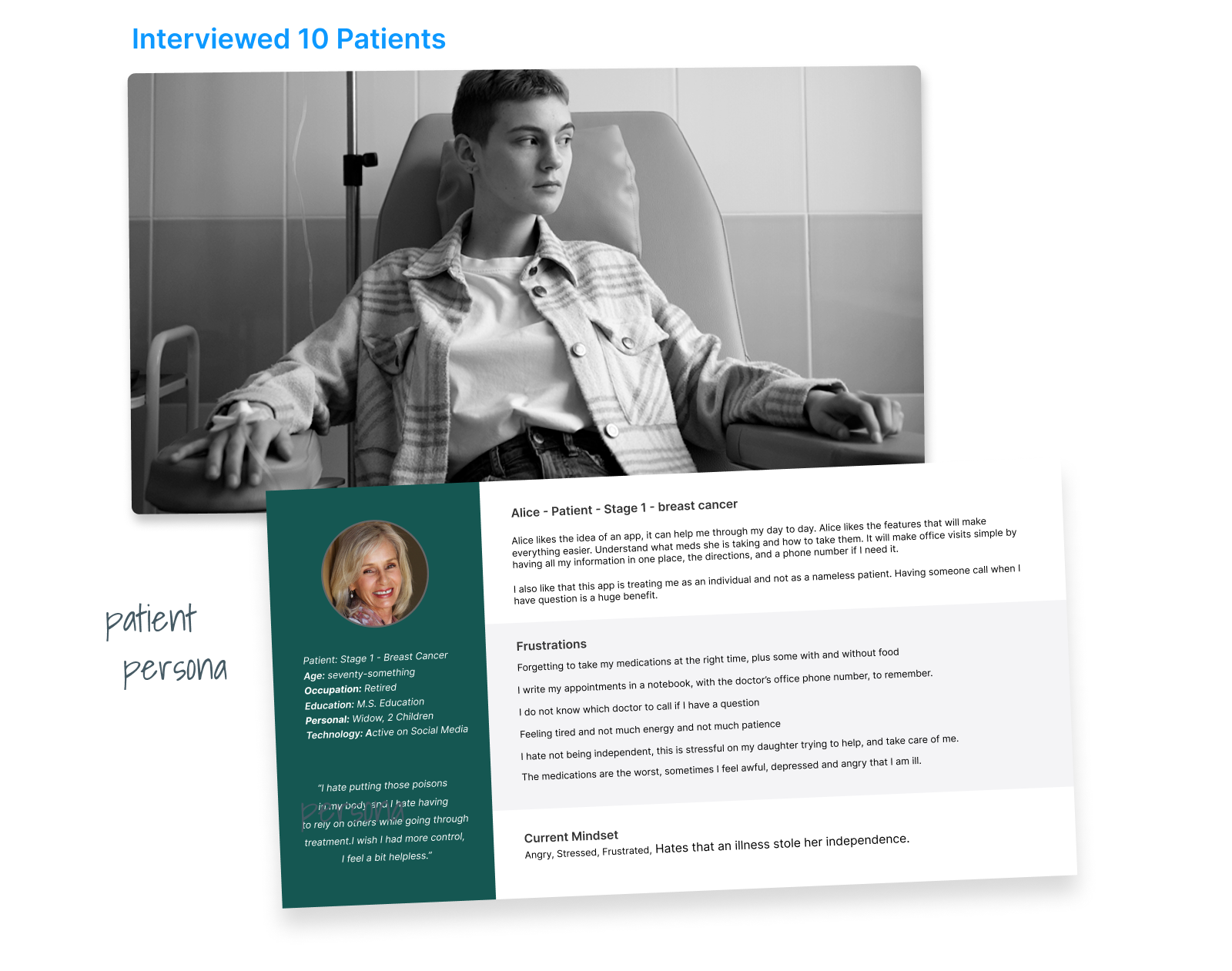
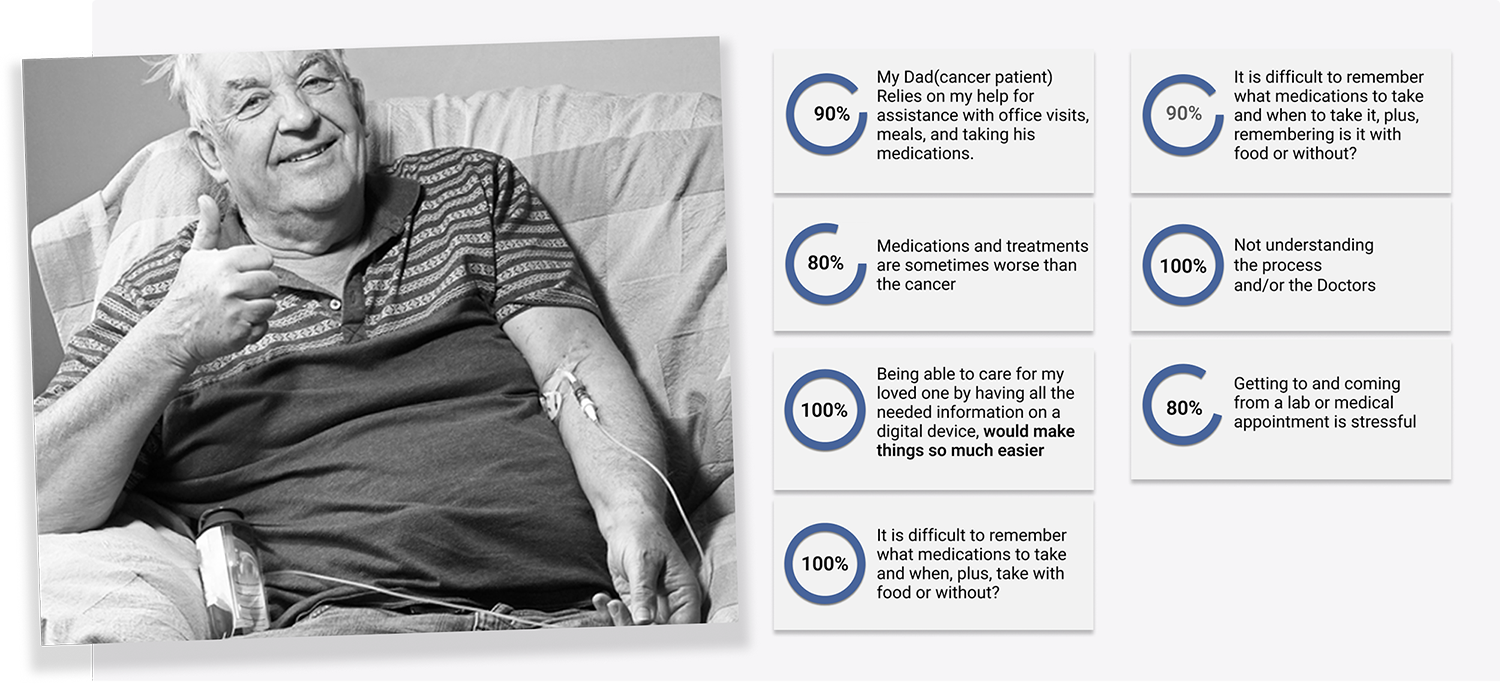
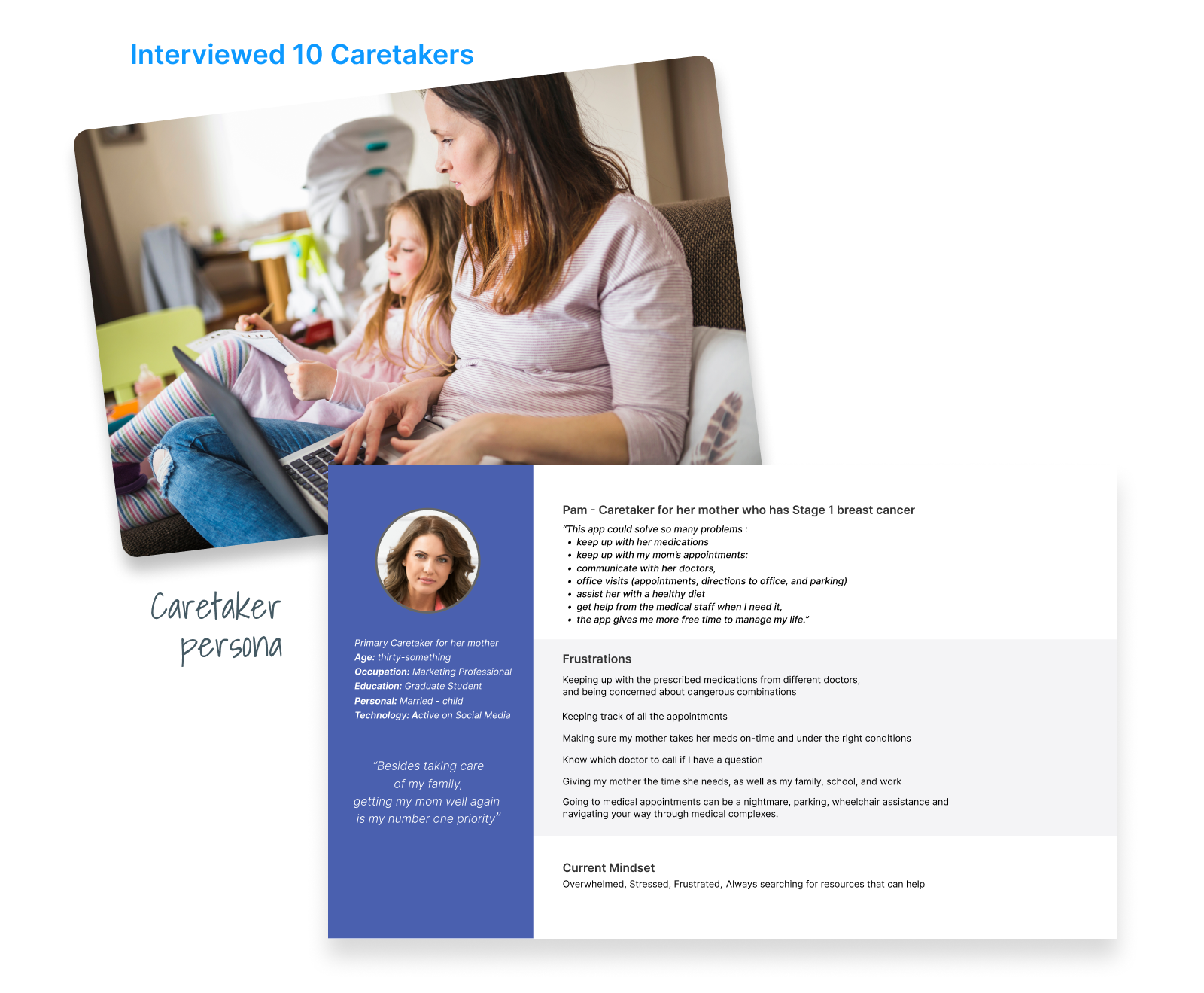
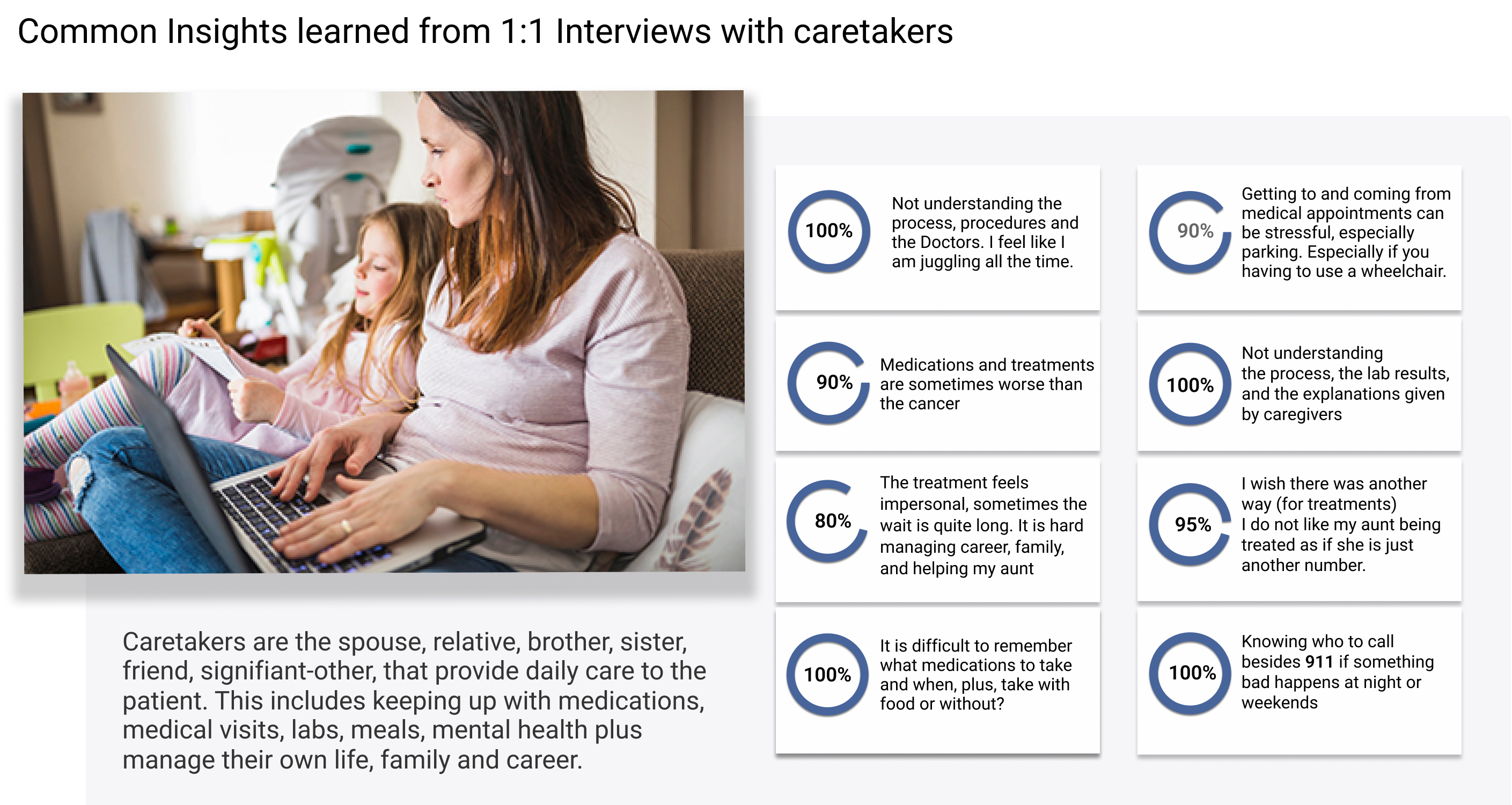

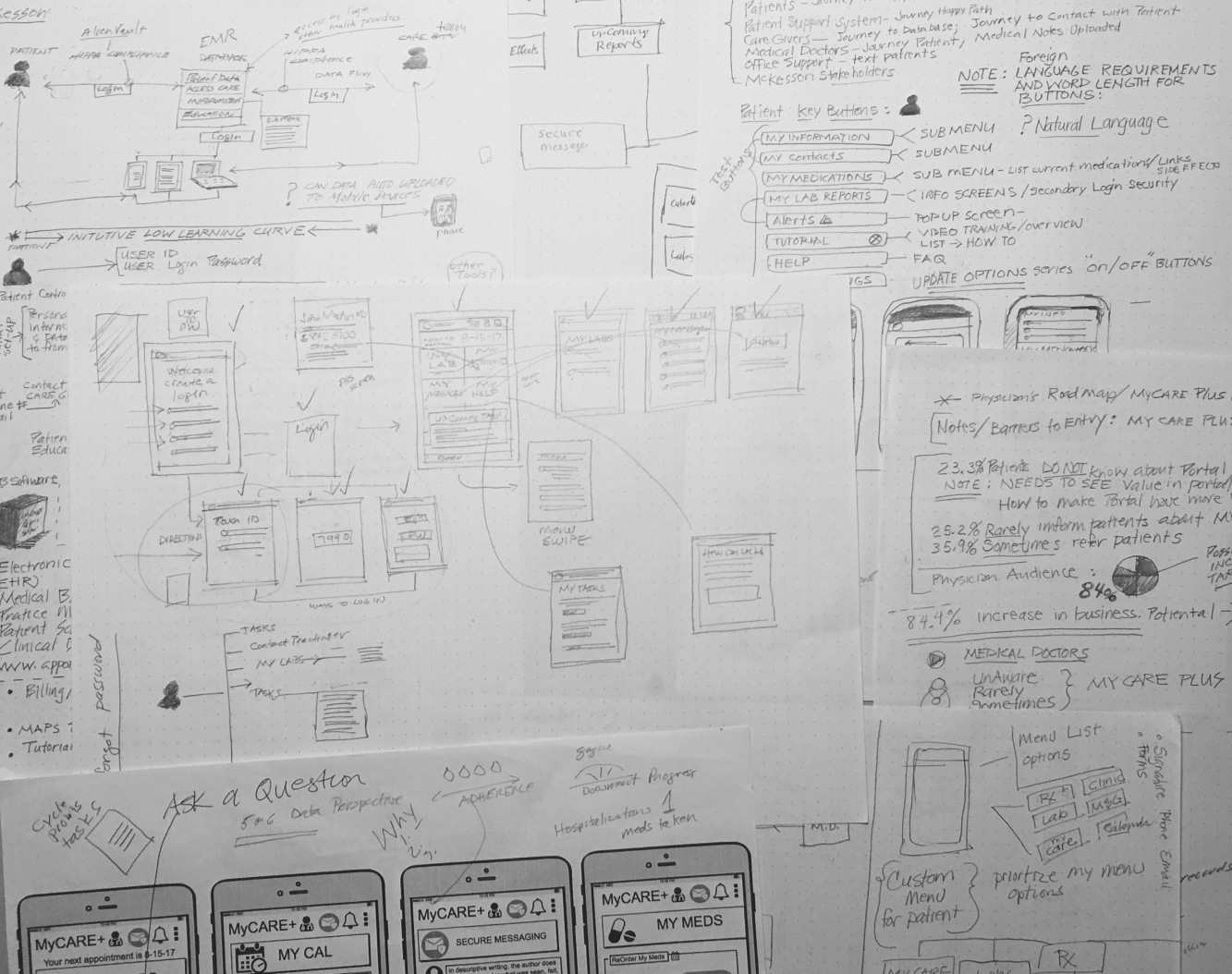
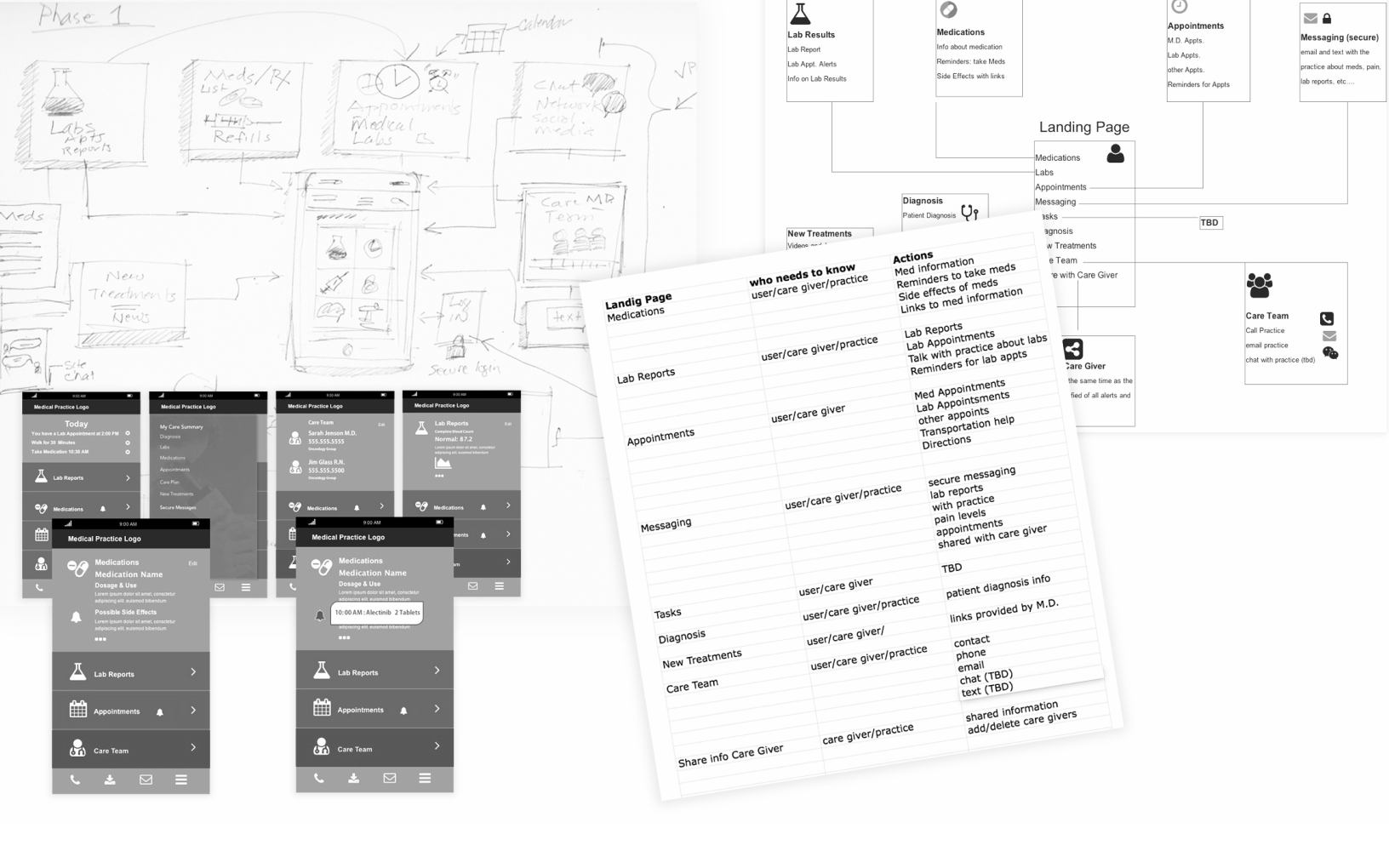
All the of those tested,(caretakers and patients) requested large buttons, after chemo treatments their motor skills are comprised. Most users (patients) have to use both hands to navigate tablets and mobile phones.
